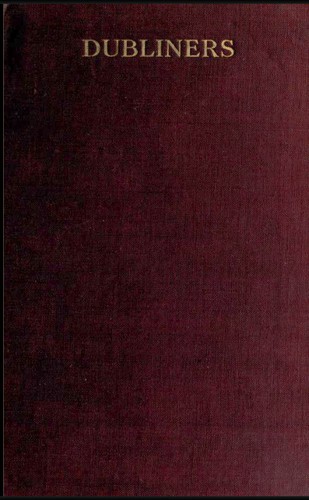
Dubliners
by
James Joyce's disillusion with the publication of Dubliners in 1914 was the result of ten years battling with publishers, resisting their demands to remove swear words, real place names and much else, including two entire stories. Although only 24 when he signed his first publishing contract for the book, Joyce already knew its worth: to alter it in any way would 'retard the course of civilisation in Ireland'. Joyce's aim was to tell the truth -- to create a work of art that would reflect life in Ireland at the turn of the last century. By rejecting euphemism, he would reveal to the Irish the unromantic reality, the recognition of which would lead to the spiritual liberation of the country. Each of the fifteen stories offers a glimpse of the lives of ordinary Dubliners -- a death, an encounter, an opportunity not taken, a memory rekindled -- and collectively they paint a portrait of a nation. - Back cover.
Dubliners is a collection of vignettes of Dublin life at the end of the 19th Century written, by Joyce’s own admission, in a manner that captures some of the unhappiest moments of life. Some of the dominant themes include lost innocence, missed opportunities and an inability to escape one’s circumstances.
Joyce’s intention in writing Dubliners, in his own words, was to write a chapter of the moral history of his country, and he chose Dublin for the scene because that city seemed to him to be the centre of paralysis. He tried to present the stories under four different aspects: childhood, adolescence, maturity and public life.
‘The Sisters’, ‘An Encounter’ and ‘Araby’ are stories from childhood. ‘Eveline’, ‘After the Race’, ‘Two Gallants’ and ‘The Boarding House’ are stories from adolescence. ‘A Little Cloud’, ‘Counterparts’, ‘Clay’ and ‘A Painful Case’ are all stories concerned with mature life. Stories from public life are ‘Ivy Day in the Committee Room’ and ‘A Mother and Grace’. ‘The Dead’ is the last story in the collection and probably Joyce’s greatest. It stands alone and, as the title would indicate, is concerned with death.
----------
Contains